What are the best medicinal plants in Iowa?
Finding the best medicinal plants in Iowa was not as easy as I thought. Some require extensive care, others are prone to pests, and lots are just not simple & quick enough to grow.
That’s why I created a list of the 10 Best Medicinal Plants in Iowa!
This ultimate guide will give you the best medicinal plants in Iowa, why you should grow them, and even how to grow them.
Read THIS Before Growing Medicinal Plants in Iowa
Knowing what hardiness zone Iowa is in is critical to understanding the best medicinal plants that can be grown.
It can be the difference between medicinal plants in Iowa thriving and providing a bountiful yield or producing nothing.
Iowa is mostly considered Hardiness Zone 5, while some of the lower-level regions are Hardiness Zone 6.
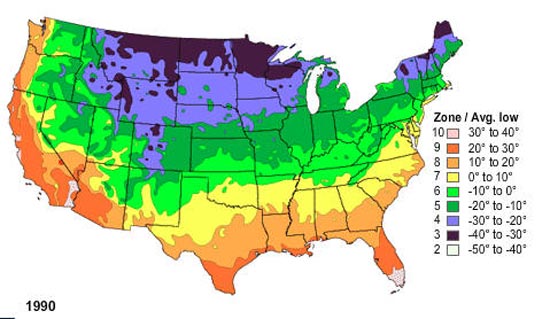
10 Best Medicinal Plants in Iowa
#1. Basil
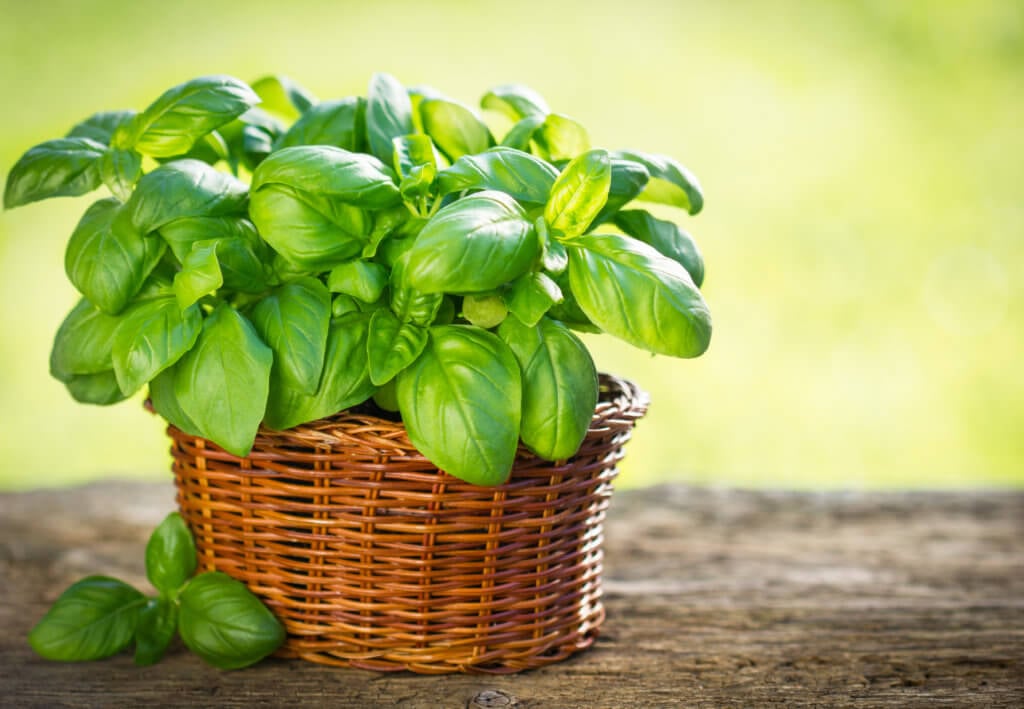
Popular Varieties: Sweet, Genovese, Thai, Purple
Why Grow Basil in Iowa?
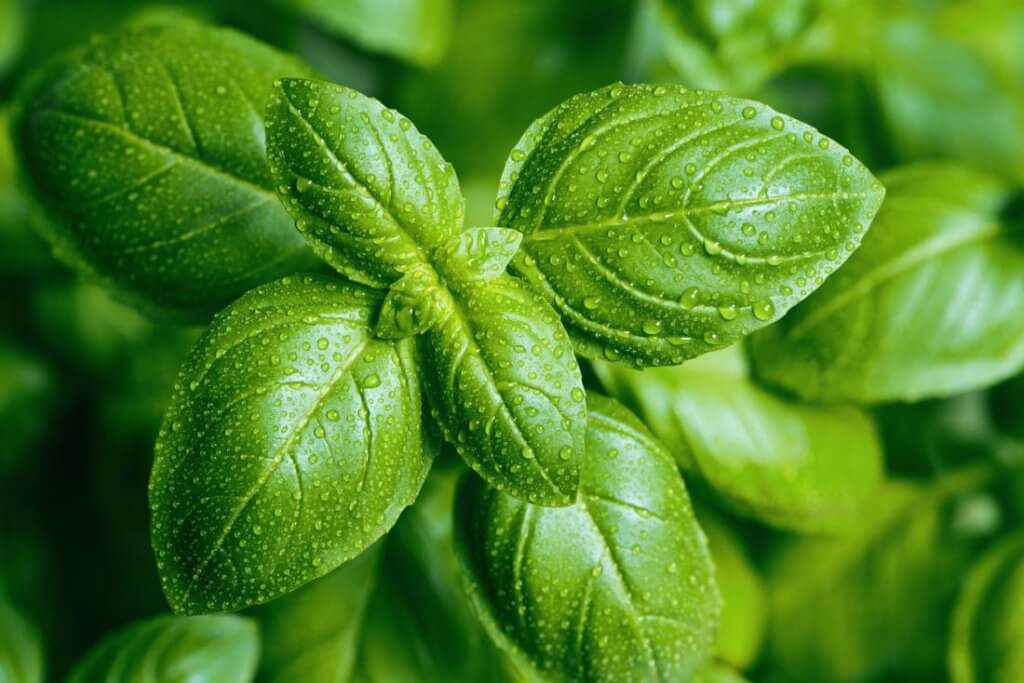
Thrives in Heat:
- As the summers get warmer basil continues to get grow and become more flavorful. Look no further for a low-maintenance herb.
Low-Maintenance:
- Basil may be the easiest herbs to grow. You do not need to fertilize it, only need to water it once to twice a week, and it can be planted in any soil.
Perfect for ANY Garden:
- Basil is perfect for urban gardening, window boxes, garden containers, and areas of little space. It is also great in traditional gardens, raised garden beds, and even indoors.
Harvested All Summer:
- Basil can be harvested all summer. The more you harvest basil the more it will grow.
THESE Could Harm Your Basil
Disease:
- Basil is one of the most disease-prone herbs. Expect blight, fungus, and rot to affect your plant in the later summer months.
Frost:
- If the weather drops below 35 degrees Fahrenheit expect your basil to not grow, become stunted, and die. This means you should grow your herb well after the last frost and harvest before the first frost of the fall.
Additional Resources
Learn How To Grow Basil HERE
#2. Oregano
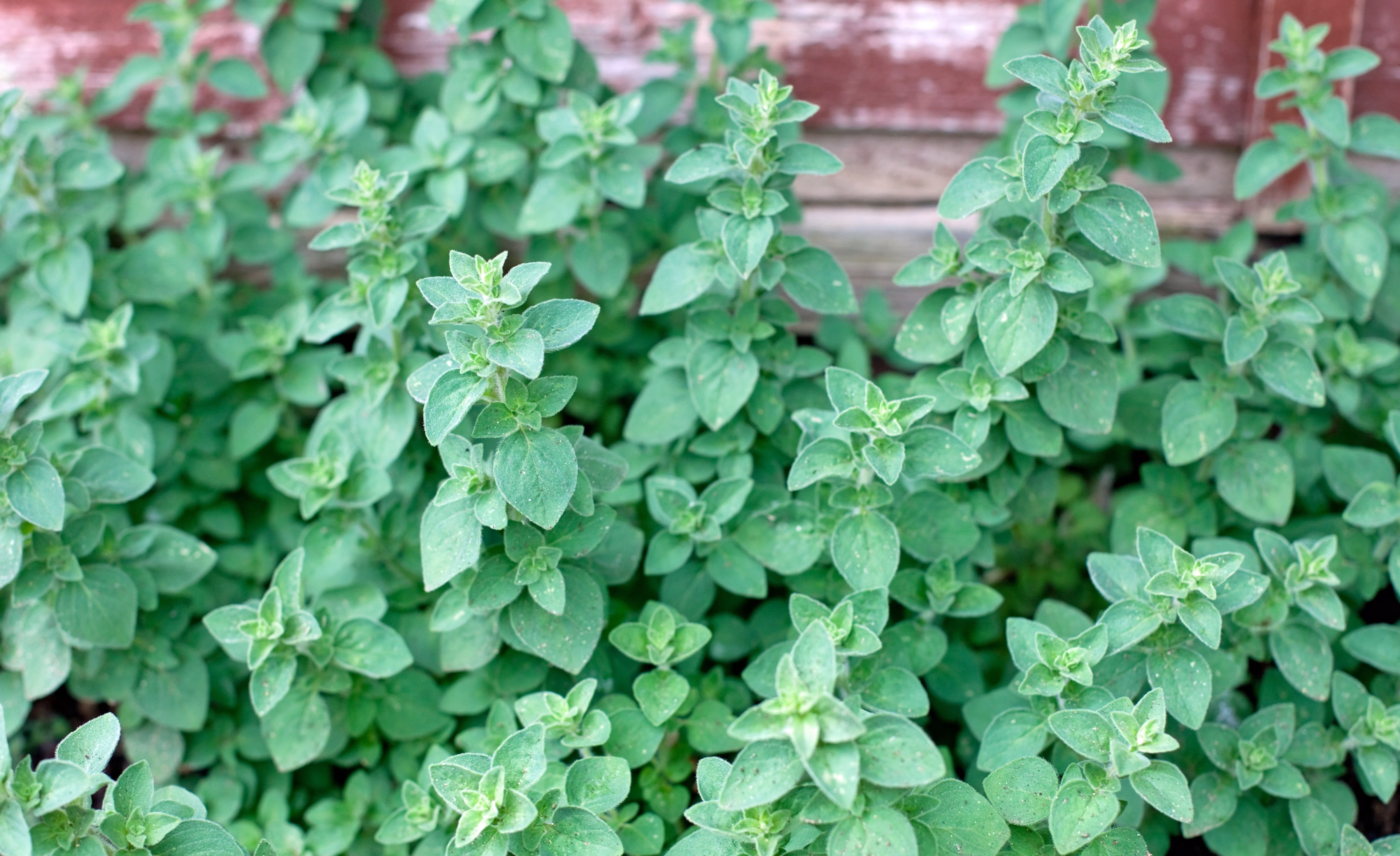
Popular Varieties: Italian, Common, Greek, Cuban
Why Grow Oregano in Iowa?
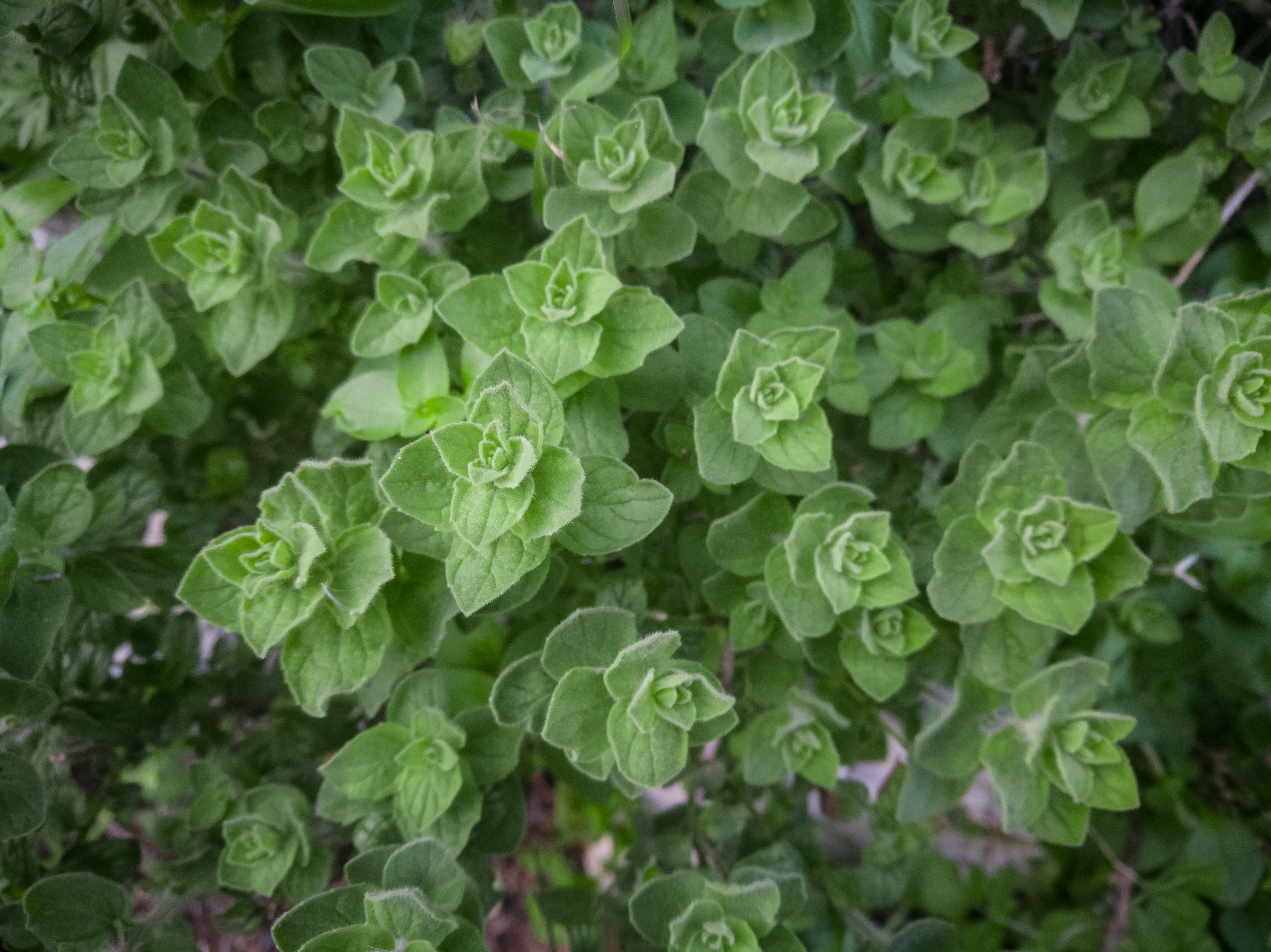
Cold Hardy:
- Oregano is the hardiest herb when it comes to cold in Iowa. Unlike any other herb on this list, Oregano can be grown throughout the entire year.
Ornamental:
- Oregano can also be considered an ornamental plant that is perfect for edges, garden containers, and traditional gardens. This means it can add color, features, and beauty to any type of yard.
Perennial:
- One of the greatest benefits of growing oregano is that it is a perennial plant. This means you plant it once and you can enjoy it every year!
THESE Could Harm Your Oregano
Invasive
- Herbs are rarely invasive plants. But herbs can be. If you don’t prune your oregano it can quickly take over a garden and hurt your other plants.
Extreme Heat
- Unlike other herbs, extreme heat won’t kill your herbs. However, it will hurt its flavor and longevity of its use.
Additional Resources
Learn How To Grow Oregano HERE
#3. Echinacea
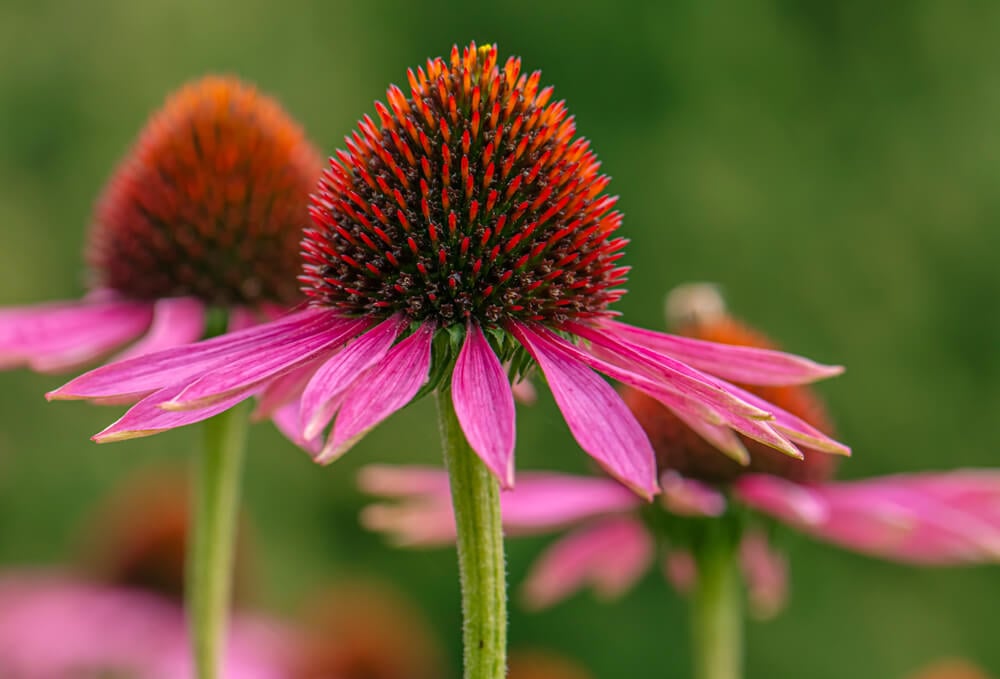
Popular Varieties: Purple, Yellow, Pale Purple
Why Grow Echinacea in Iowa?
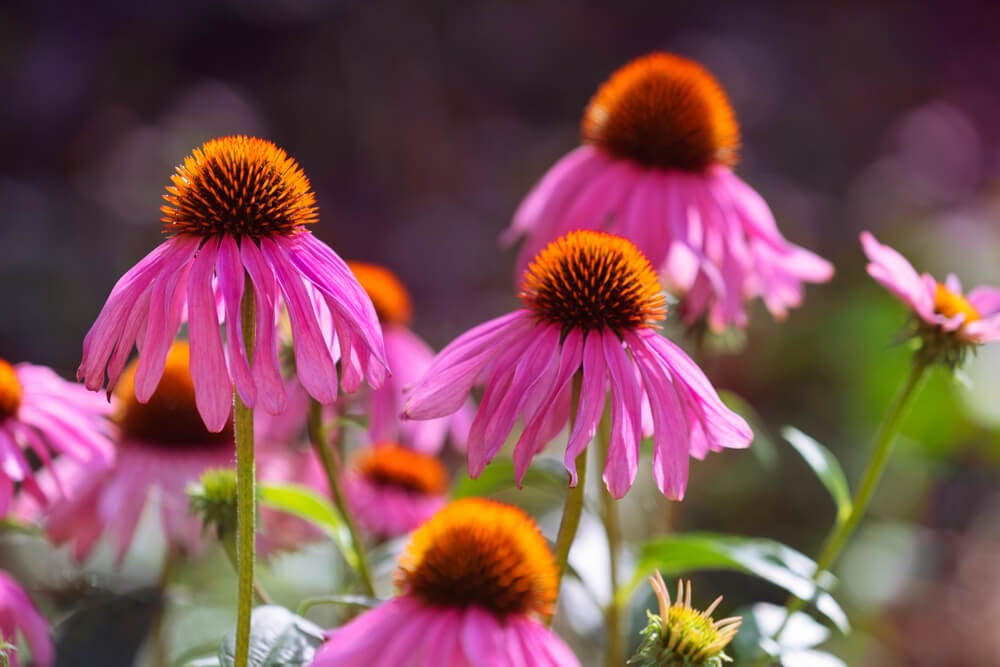
Perfect for ALL Gardens:
- Coneflower flowers are the perfect flower that can be planted anywhere in your yard, garden, and even inside your house.
Low Maintenance:
- Coneflowers are the easiest flower to grow. You do not need to fertilize it, barely need to water it, it can be planted in any soil, and you never have to prune it!
Numerous Varieties:
- There are almost 24 variants of Coneflower flowers. They come in many sizes and bloom in beautiful colors of pink, purple, white, yellow, etc. They are easy to grow and can be planted anywhere in the world making them a favorite of beginner flower gardeners.
THESE Could Harm Your Mint
Insects:
- Garden pests won’t bother coneflowers, droughts, and heat won’t either. Insects will though. Japanese Beetles, potato whiteflies, aphids, and mites will harm and destroy coneflowers.
Additional Resources
Learn How to Grow Coneflowers HERE
#4. Sage
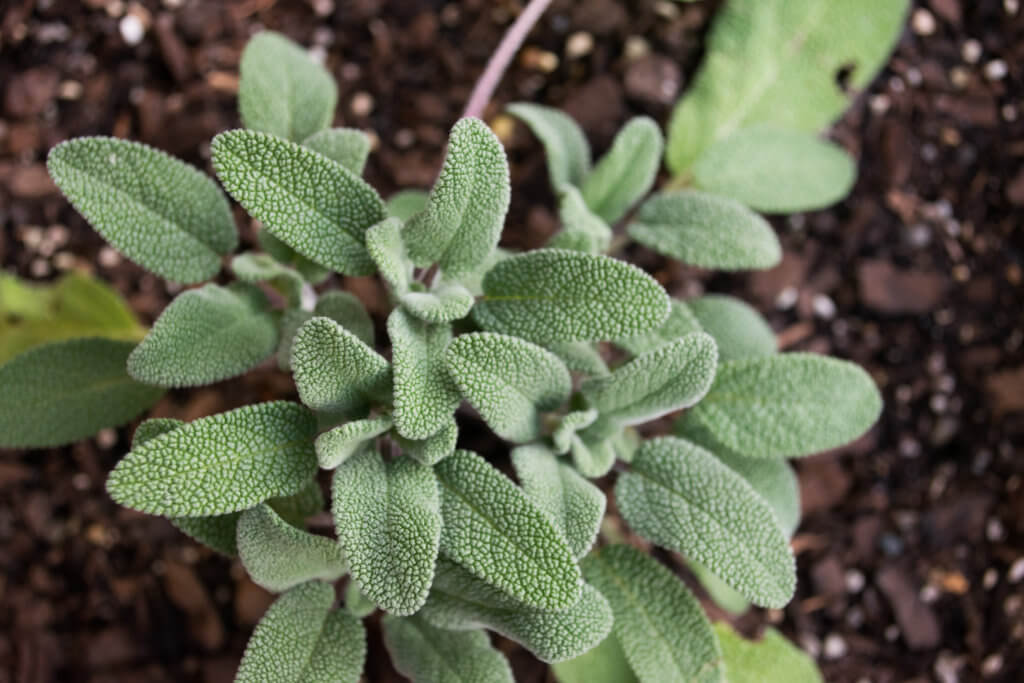
Popular Varieties: Garden, Pineapple, Purple, Golden
Why Grow Sage in Iowa?
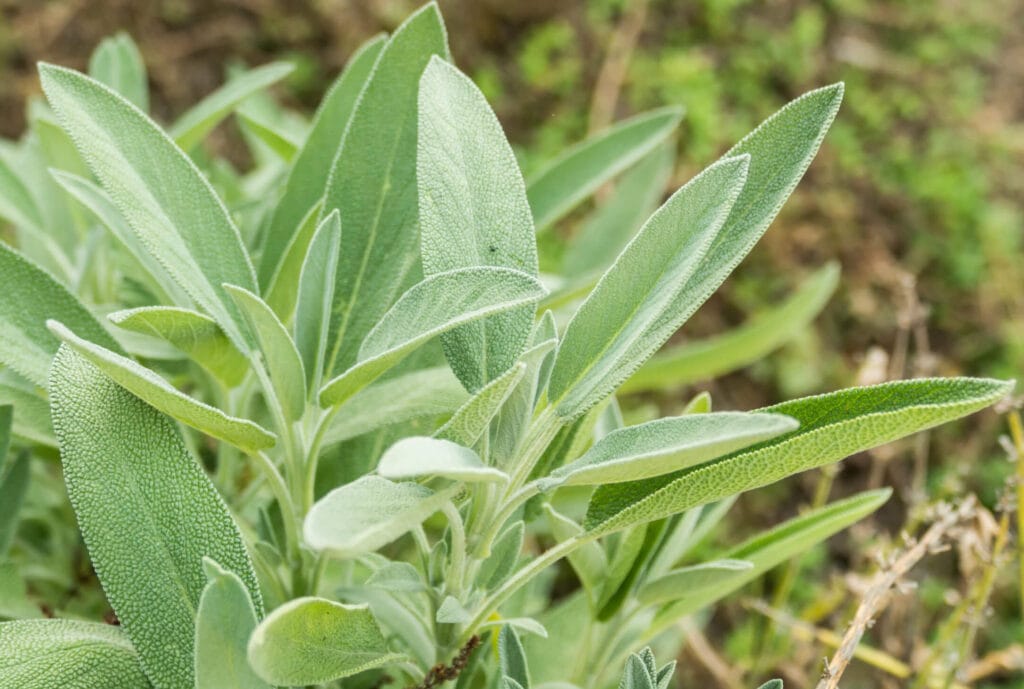
Thrives in the heat:
- As the summers get warmer sage continues to get bigger and more plentiful. Look no further for a low-maintenance herb.
Repels Mosquitoes:
- Sage is one of the best herbs to grow in your garden to repel mosquitoes and other insects. You can leave it in your garden, burn it, or even rub it on you to repel bugs.
Perfect in All Types of Garden:
- Some herbs only do well in the ground. Not sage. You can grow them in containers, window boxes, raised garden beds, and even in poor soil.
THESE Could Harm Your Sage
Diseases:
- Sage is also one of the most disease-prone herbs, especially non-garden variants. Expect your herb to most vulnerable during spring or summer (even if you properly care for them).
Additional Resources
Learn How to Grow Sage HERE
#5. Blueberries
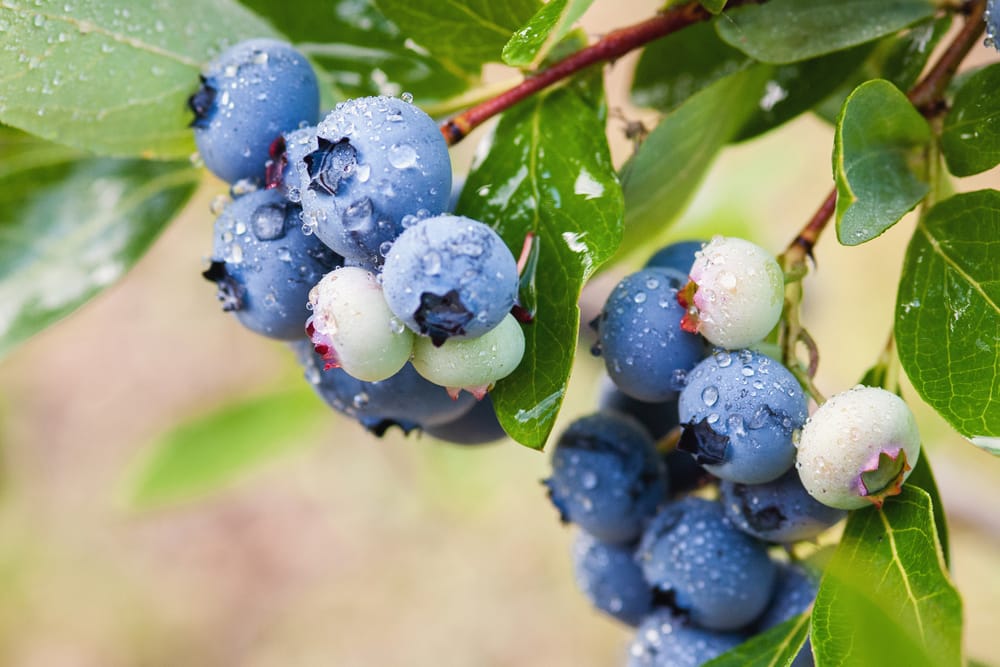
Popular Varieties: Bluejay, Bluecrop, Duke, Pink Icing
Why Grow Blueberries in Iowa?
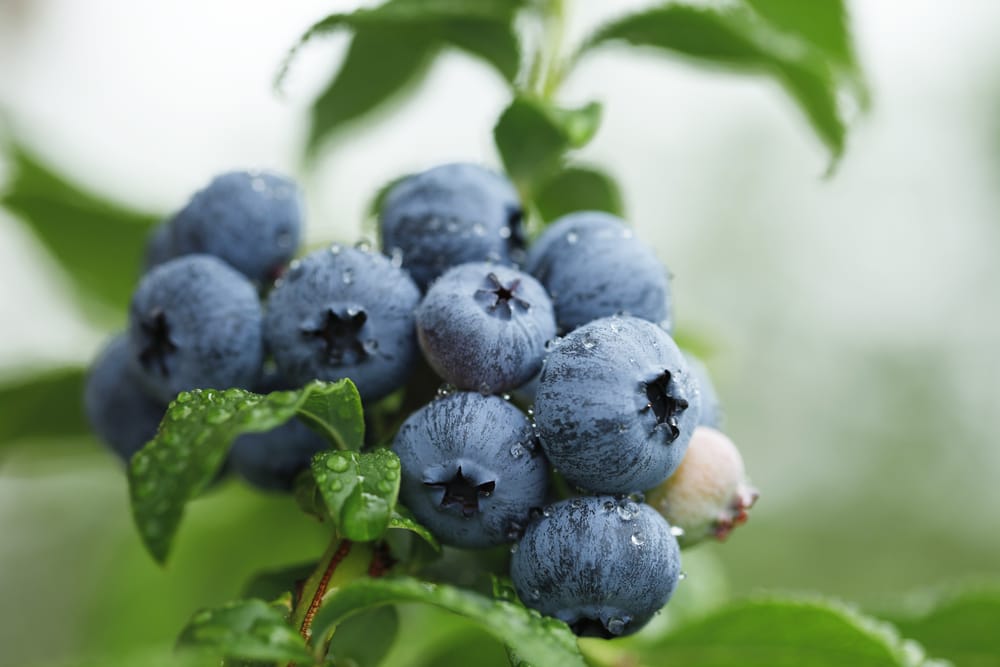
Cold Hardy:
- Blueberry bushes thrive in cold spring and cooler fall months. Unlike other fruits, flowers, and berries can grow even when there is snow or frost late into the spring.
Fast Growing:
- Blueberries may be one of the quickest berry bushes to grow. With just a little peat moss and fertilizer you can expect your bush to grow to 6 feet tall in just several years and bare more berries than you know what to do with.
THESE Could Harm Your Blueberries
Insects:
- Blueberry bushes are prone to diseases. Mold and root rot are just two of the diseases that can harm, attack, and kill your blueberry bushes in winter and spring.
Additional Resources
Learn How To Grow Blueberries HERE
#6. Rosemary
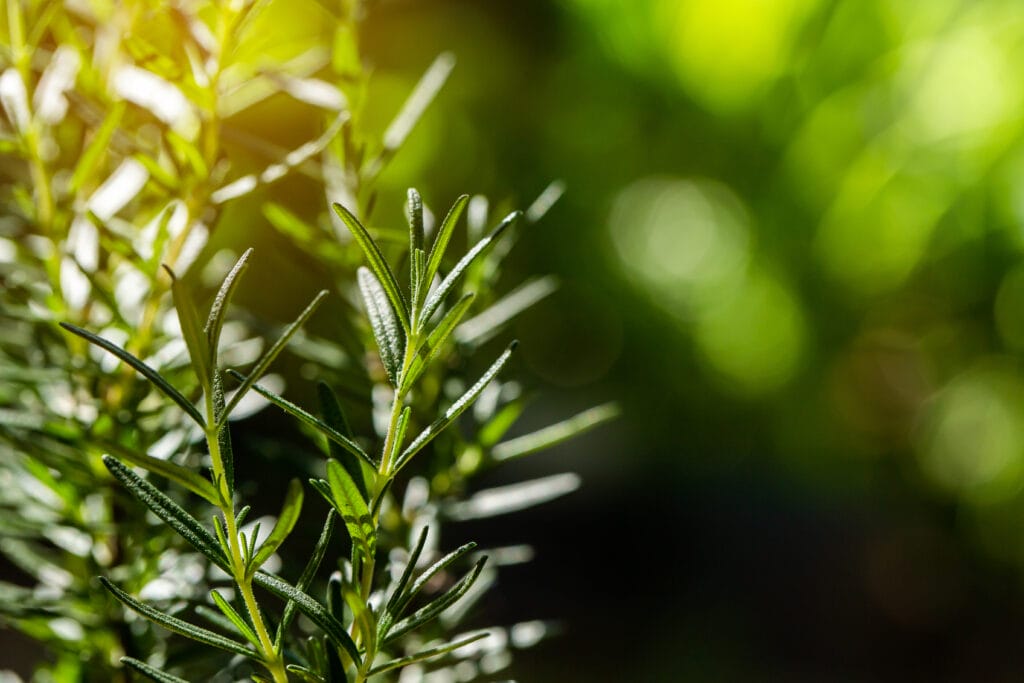
Popular Varieties: Creeping, Tuscan, Arp
Why Grow Rosemary in Iowa?
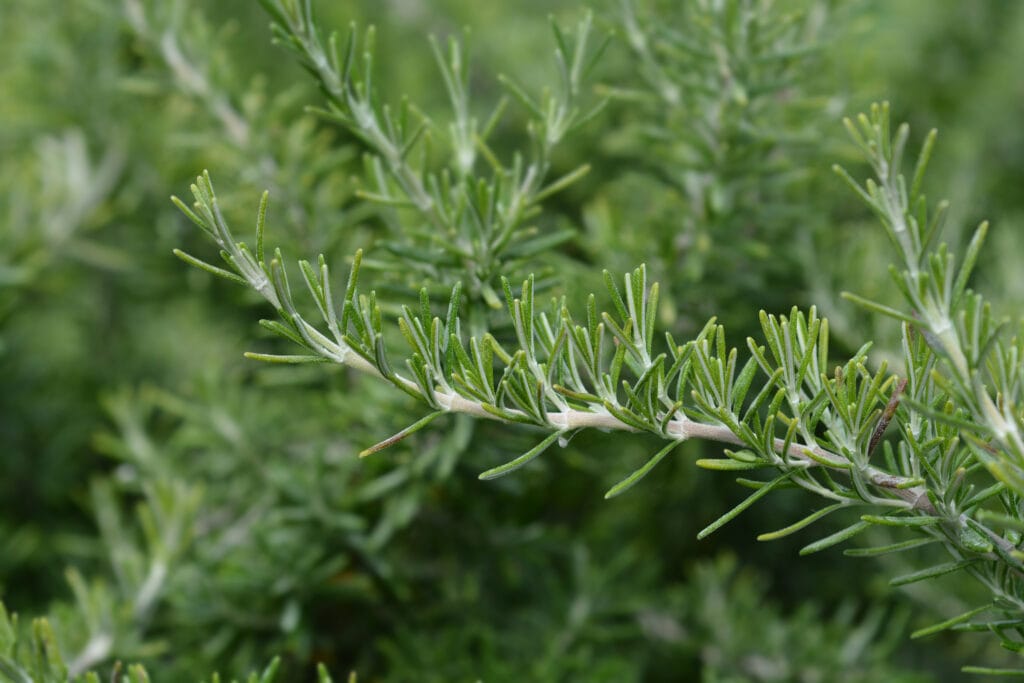
Thrives in the heat & cold:
- Rosemary is another hardy herb. Some varieties can be grown in cold weather and some can be grown in warmer weather.
Lots & Lots of Harvest:
- Rosemary is one of the few herbs that you can harvest from late spring to late fall. This means you will be able to enjoy it all year long.
Amazing Cross-Pollinator:
- Rosemary is a herb that works great to help to cross-pollinate other herbs. Plant rosemary next to beans, cabbage, and peppers for an even larger harvest.
THESE Could Harm Your Rosemary
Beetles:
- Beetles are ferocious. While they typically eat leaves of trees they can also destroy rosemary plants. To help prevent this I recommend using netting.
Droughts:
- Drought is one of the biggest threats to growing rosemary. Rosemary plants need a consistent amount of water to thrive and produce a large harvest.
Additional Resources
Learn How to Grow Rosemary HERE
#7. Lavender
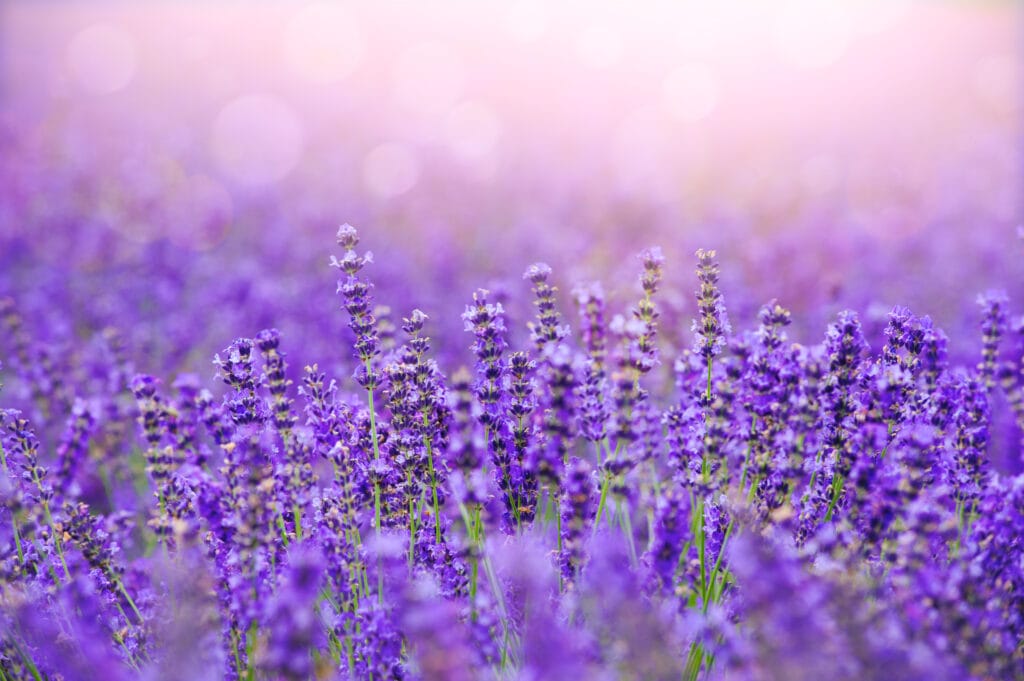
Popular Varieties: English Lavender, French Lavender, Lavadin
Why Grow Lavender in Iowa?
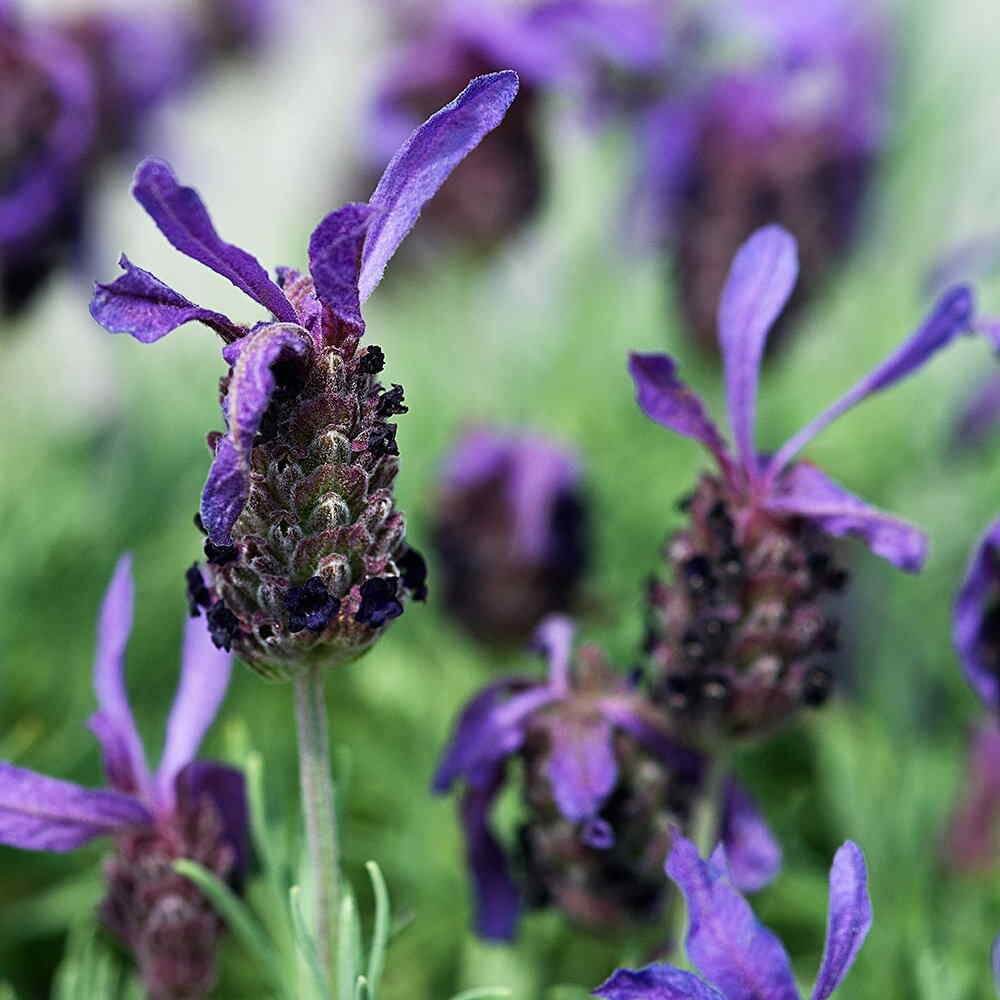
Loves heat:
- These low-maintenance herbs love the heat. The hotter the summer the better they do. And the longer summer goes on the more lavender you will have.
Perfect Ornamental Plant:
- Lavender can also be considered an ornamental plant that is perfect for lawns, edges, garden containers, and traditional gardens. This means it can add color, features, and beauty to any type of yard.
Fits in ALL Gardens:
- Regardless of whether you live in northern or southern Iowa lavender grows great in all types of gardens. I especially love growing them in raised garden beds and garden containers.
Insect Hardy:
- If you have trouble with insects infecting your herbs in Iowa then you should plant lavender. This herb is one of the few in Iowa that you won’t have to worry about insect infestation all year.
THESE Could Harm Your Lavender
Cold
- When the weather turns cold then your lavender won’t die, but it will stop growing, lose its fragrance, and won’t be ready to harvest until it grows back the following year.
Additional Resources
Learn How to Grow Lavender HERE
#8. Chamomile
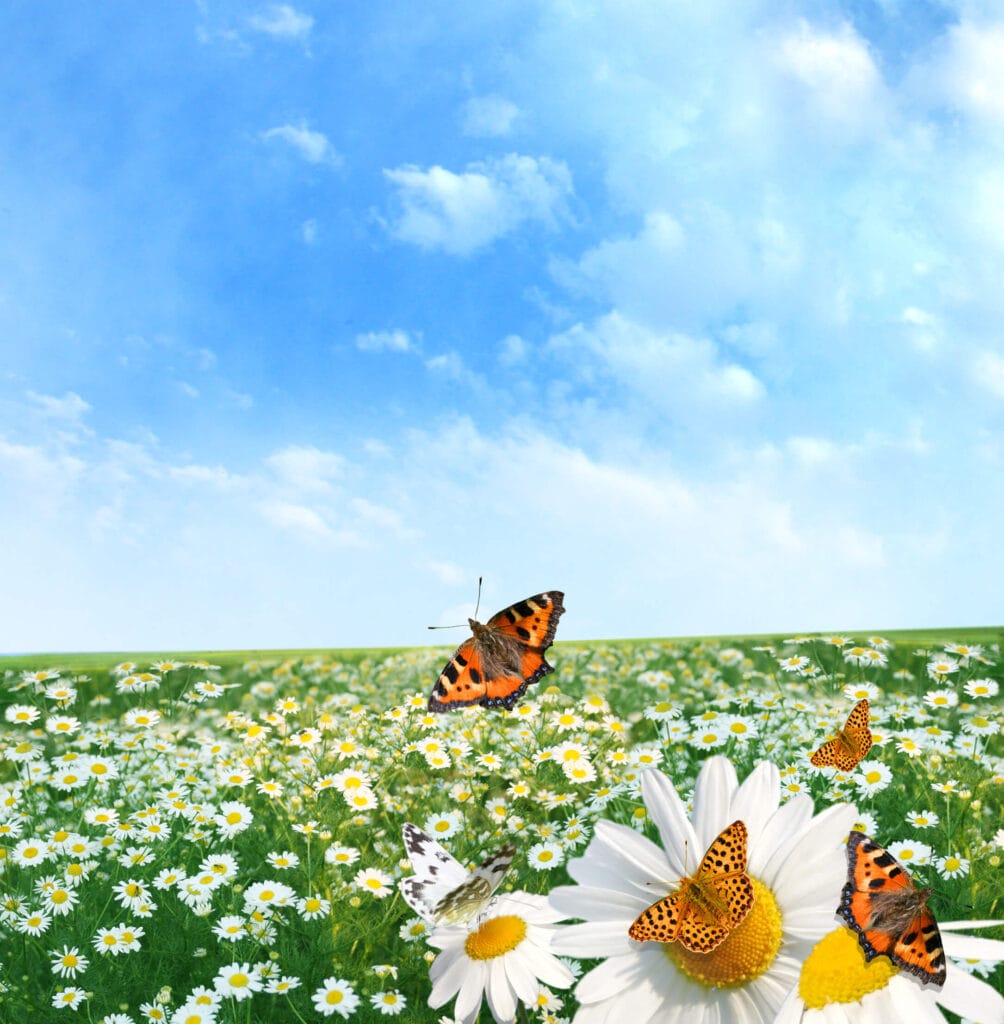
Popular Varieties: German & Roman
Why Grow Green Chamomile in Iowa?
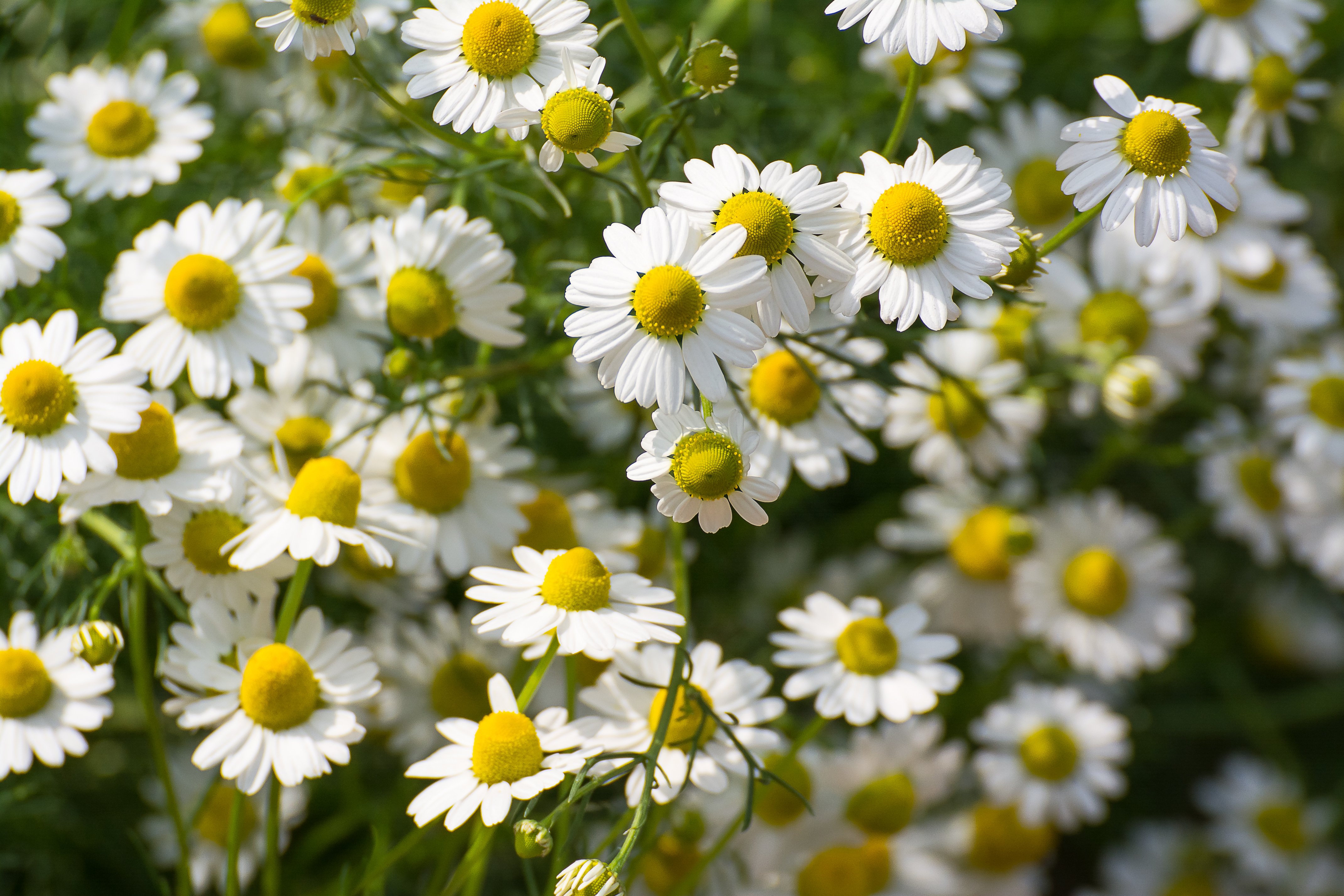
Thrives in Droughts:
- Chamomile is another great herb that requires little to no additional watering than what it will get from rain. This makes it the perfect herb to grow in Iowa.
Perennial:
- One of the greatest benefits of growing chamomile is that it is a perennial plant. This means you plant it once and you can enjoy it every year! I recommend planting & growing chamomile anywhere in your yard!
THESE Could Harm Your Chamomile
Garden Pests:
- Rabbits, Deer, & even birds love eating chamomile. They’ll eat you’ll leave and even your flower buds if you do not protect them with netting or rodent spray.
Cold Weather:
- Like most perennial herbs, chamomile will begin dying off once frost touches it. This means you can only grow this herb in late spring to early autumn.
Additional Resources
Learn How to Grow Chamomile HERE
#9. Garlic
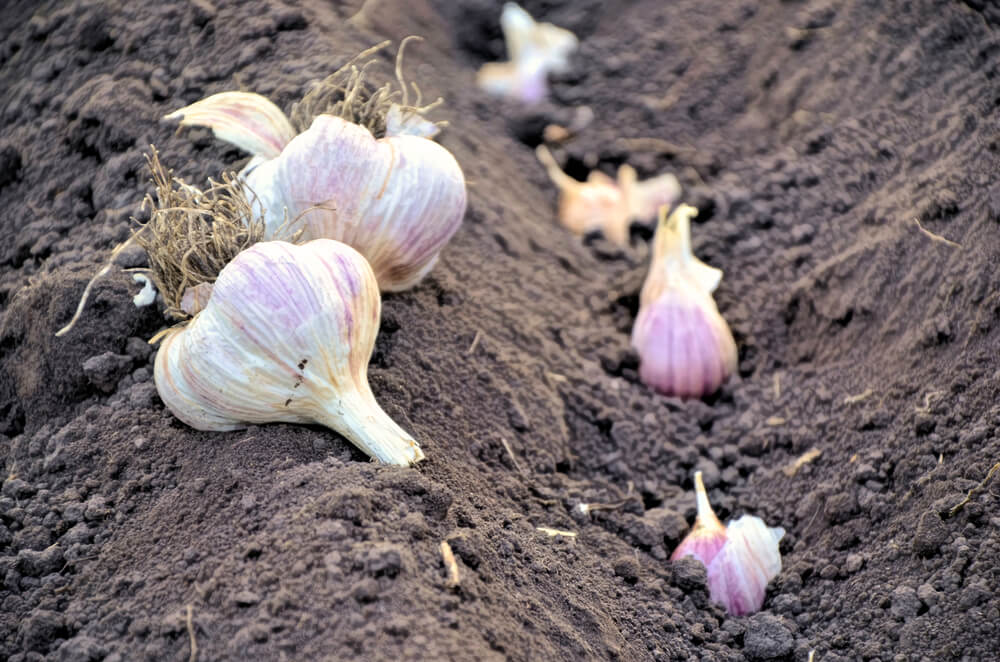
Popular Varieties: Solo, Snow Mountain, Aglio
Why Grow Garlic in Iowa?
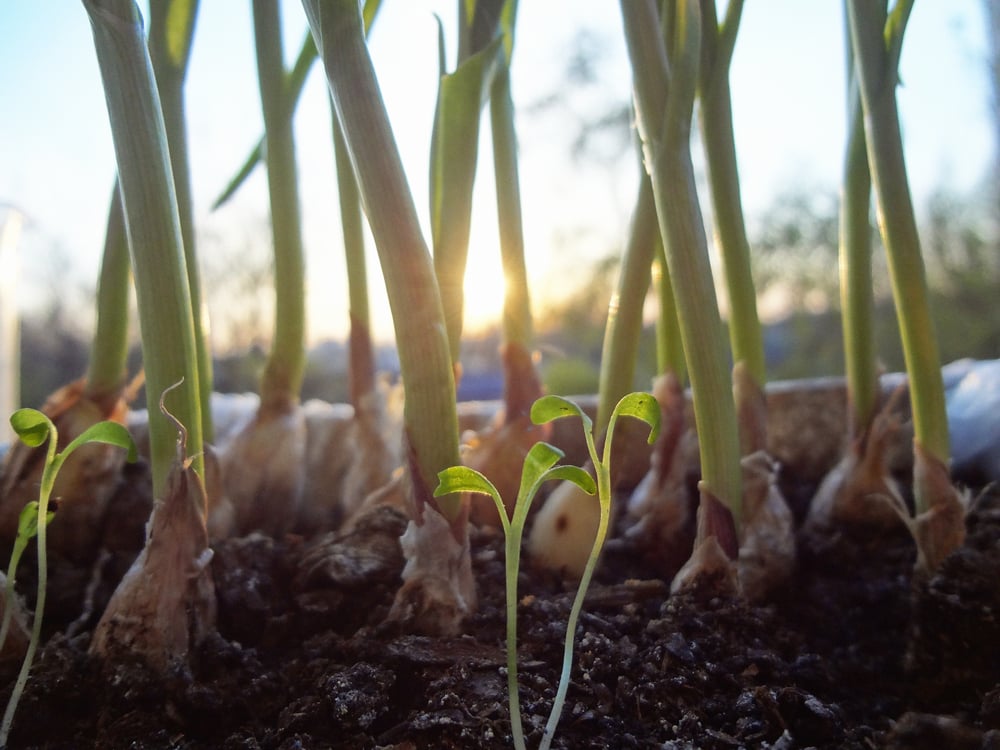
Thrives in Droughts:
- Garlic is one of the few herbs that can thrive in droughts and extreme heat. It requires little water, no care, and no fertilizer.
Cold Weather:
- Because Garlic is a perennial herb it can survive some of the most extreme temperatures compared to other herbs! You’ll notice it begins to grow in early spring and can survive all the way until late fall.
THESE Could Harm Your Garlic
Garden Pests:
- Rabbits, Deer, & even birds can dig up and destroy your garlic. Most people think animals and pests will not eat pests, but that is a common myth. Protect your garlic with netting or rodent spray.
Additional Resources
The biggest tip I have when growing Garlic in Iowa is to place your herb in a space where you want it to grow every single year without having to move it. Most gardeners plant their herbs too close together or in an area that they decide later they want to grow other plants.
#10. Fig
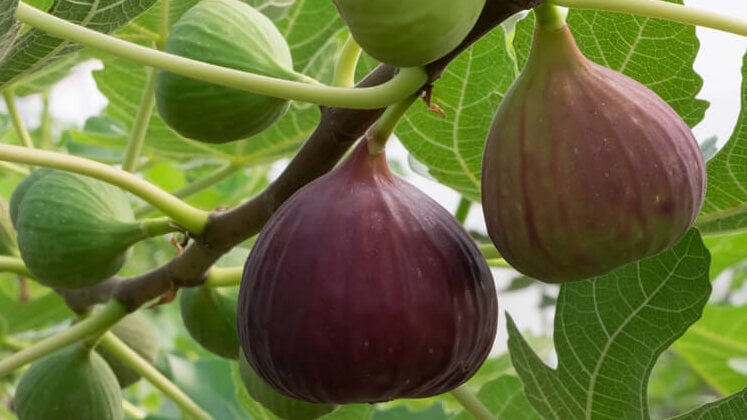
Popular Varieties: Chicago, Turkey, Brown
Why Grow Figs in Iowa?
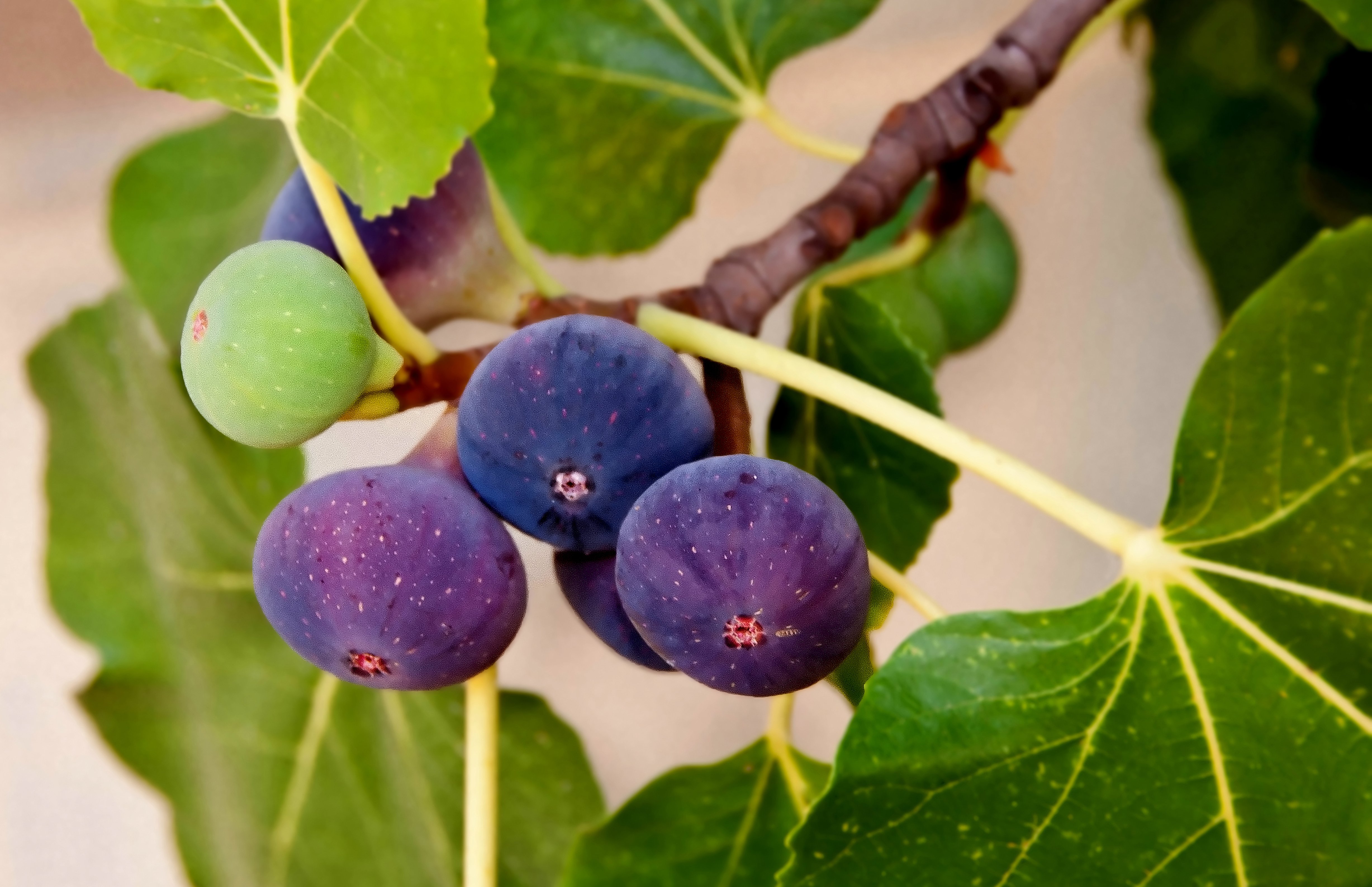
Pest-Resistant:
- The fig tree is the only fruit tree on this list that is truly pest-resistant. Deers hate fig trees, rabbits can’t reach the fruit, and squirrels and chipmunks find easier food elsewhere.
Perfect for Indoors & Outdoors:
- No other fruit on this list can be grown indoors and outdoors. Fig Trees can thrive outside, but most gardeners will grow them in a pot where they leave them outside during the summer months and bring them inside after the first frost of the year.
THESE Could Harm Your Fig Trees
Cold:
- While some types of fig trees can survive mild winters, most will not make it through one cold winter. If your fig tree does survive the cold then it will most likely not provide fruit.
Additional Resources
Learn How to Prune Fig Trees HERE.
Common Growing Factors of Iowa’s Best Medicinal Plants
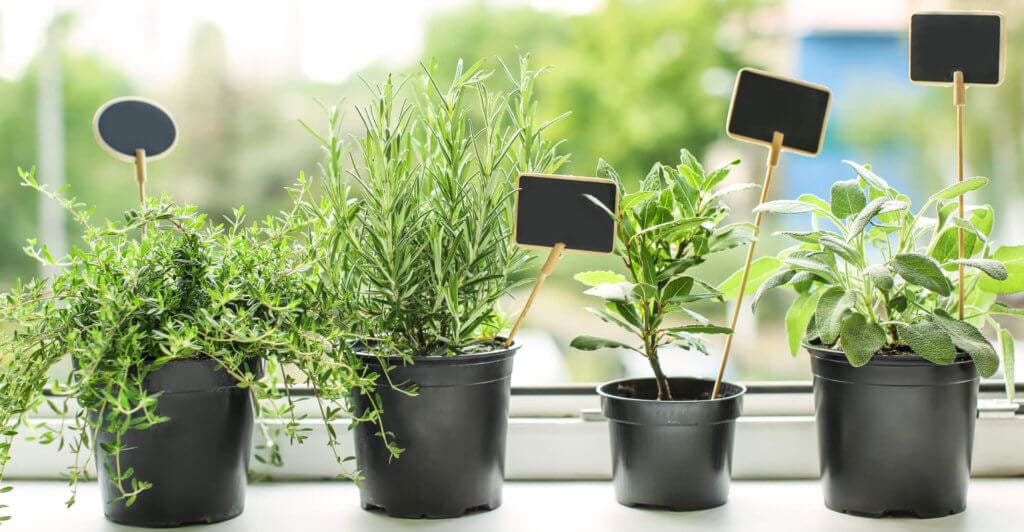
As a reminder, the below factors are common for the Best Medicinal Plants in Iowa:
- Thrives in Heat & Drought
- Thrives in Cold
- Can Grow anywhere in your yard
- Hardy against Pests & Insects
- Can be planted in ALL Types of Garden
- Great Cross-Pollinator
- Are Perennial Plants